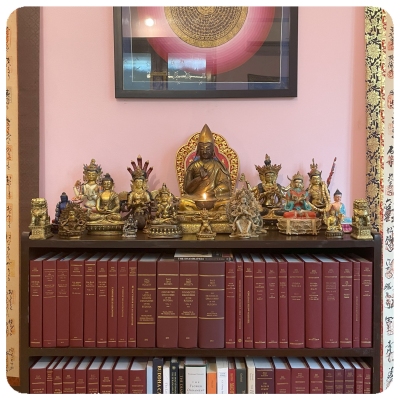
Buddhist Books Podcast
Also available through:

or through the RSS feed.
Buddhist Books Podcast is an approachable, sometimes humorous, series available on YouTube or any podcasting platform.
It is a series of videos in which I read the English translations of Buddhist scriptures aloud in English.
In most episodes, I read “Tipitaka,” the original "Three Baskets" of pre-sectarian early Buddhism. Every ten episodes, I read from "The Life and Liberation of Padmasambhava," which is a translation of “Padma Thang-yig,” the story of Padmasambhava said to have been recorded by Yeshe Tsogyal in the 8th century C.E.. There are also a few Special Episodes in which, for example, I watch and react to the film "Xuan Zang," which is the story of the 6th century C.E. monk who brought 600+ Mahayana scriptures from Nalanda University in Bihar India to China to be translated, as well as the teachings of Zen Master Dogen's Shobogenzo and Fukanzazengi.
The Tipitaka recitals will take several years to complete. Afterward, I'll read the early Mahayana scriptures, the Tipitaka commentaries of the 5th and 6th century C.E. Theravadin scholar-monks, the later Mahayana scriptures, and so on, moving century by century through this vast tradition.
     
|
Please note that I am not, nor do I claim to be, a teacher of Buddhism. Rather, I am a student of Buddhism who is inspired to share with you my own exploration of the scriptures.
This project is not affiliated with any organization, lineage, nor group. It is entirely shot, edited, produced, and funded by me (Edward Reib) as a passion project for the purpose of making these source texts of Buddhism, the original scriptures, more widely and freely available to anyone who wants to learn them.
Most Recent   |
 |
First Episode   |
1. DHAMMAPADA 2. LOTUS SŪTRA 3. PĀLI SCRIPTURES 4. JAIN SŪTRAS 5. TIPIṬAKA 6. PADMASAMBHAVA 7. SHINGON Special Episodes Behind The Scenes |

Buddhist Books: TIPIṬAKA 153
Mahāvagga III - Part 1
[00:38:59] July 24th, 2024
This is Part 153 of my recital of the "Tipiṭaka," the "Three Baskets" of pre-sectarian Buddhism, as translated into English from the original Pali Language.
In this episode, we'll begin reading "Mahāvagga III," from the "Vinaya Piṭaka," the first of the three "Piṭaka," or "Baskets." "Mahāvagga" literally means "Great Division."
•

Buddhist Books: TIPIṬAKA 152
Mahāvagga II - Part 8
[00:39:31] July 16th, 2024
This is Part 152 of my recital of the "Tipiṭaka," the "Three Baskets" of pre-sectarian Buddhism, as translated into English from the original Pali Language.
In this episode, we'll finish reading "Mahāvagga II," from the "Vinaya Piṭaka," the first of the three "Piṭaka," or "Baskets." "Mahāvagga" literally means "Great Division."
•

Buddhist Books: TIPIṬAKA 151
Mahāvagga II - Part 7
[00:38:10] July 9th, 2024
This is Part 151 of my recital of the "Tipiṭaka," the "Three Baskets" of pre-sectarian Buddhism, as translated into English from the original Pali Language.
In this episode, we'll continue reading "Mahāvagga II," from the "Vinaya Piṭaka," the first of the three "Piṭaka," or "Baskets." "Mahāvagga" literally means "Great Division."
•

Buddhist Books: Padmasambhava - Part 14
[00:38:24] July 2nd, 2024
This is Part 14 of my recital of the "The Life & Liberation of Padmasambhava," a translation of "Padma Thang-yig," by Yeshe Tsogyal.
In this episode, we'll read Cantos 26 & 27.
•

Buddhist Books: TIPIṬAKA 150
Mahāvagga II - Part 6
[00:36:38] June 27th, 2024
This is Part 150 of my recital of the "Tipiṭaka," the "Three Baskets" of pre-sectarian Buddhism, as translated into English from the original Pali Language.
In this episode, we'll continue reading "Mahāvagga II," from the "Vinaya Piṭaka," the first of the three "Piṭaka," or "Baskets." "Mahāvagga" literally means "Great Division."
•

Buddhist Books: TIPIṬAKA 149
Mahāvagga II - Part 5
[00:34:45] June 11th, 2024
This is Part 149 of my recital of the "Tipiṭaka," the "Three Baskets" of pre-sectarian Buddhism, as translated into English from the original Pali Language.
In this episode, we'll continue reading "Mahāvagga II," from the "Vinaya Piṭaka," the first of the three "Piṭaka," or "Baskets." "Mahāvagga" literally means "Great Division."
•

Buddhist Books: TIPIṬAKA 148
Mahāvagga II - Part 4
[00:35:21] June 3rd, 2024
This is Part 148 of my recital of the "Tipiṭaka," the "Three Baskets" of pre-sectarian Buddhism, as translated into English from the original Pali Language.
In this episode, we'll continue reading "Mahāvagga II," from the "Vinaya Piṭaka," the first of the three "Piṭaka," or "Baskets." "Mahāvagga" literally means "Great Division."
•

Buddhist Books: TIPIṬAKA 147
Mahāvagga II - Part 3
[00:28:40] May 24th, 2024
This is Part 147 of my recital of the "Tipiṭaka," the "Three Baskets" of pre-sectarian Buddhism, as translated into English from the original Pali Language.
In this episode, we'll continue reading "Mahāvagga II," from the "Vinaya Piṭaka," the first of the three "Piṭaka," or "Baskets." "Mahāvagga" literally means "Great Division."
•

Shingon Buddhism • Part 2
[00:49:15] May 1st, 2024
This is Part 2 of my recital of the "The Matrix and Diamond World Mandalas in Shingon Buddhism" by Adrian Snodgrass.
Shingon Buddhism is, put simply, the Japanese version of Vajrayana Buddhism. Kobo Daishi traveled to China and received the teachings and scriptures of Vajrayana Buddhism, then returned to Japan and founded the Shingon school at the top of Mount Koyasan in 815 CE, where it still flourishes today.

Buddhist Books: TIPIṬAKA 146
Mahāvagga II - Part 2
[00:35:17] April 26th, 2024
This is Part 146 of my recital of the "Tipiṭaka," the "Three Baskets" of pre-sectarian Buddhism, as translated into English from the original Pali Language.
In this episode, we'll continue reading "Mahāvagga II," from the "Vinaya Piṭaka," the first of the three "Piṭaka," or "Baskets." "Mahāvagga" literally means "Great Division."
•
Most Recent   |
 |
First Episode   |
CHAPTERS
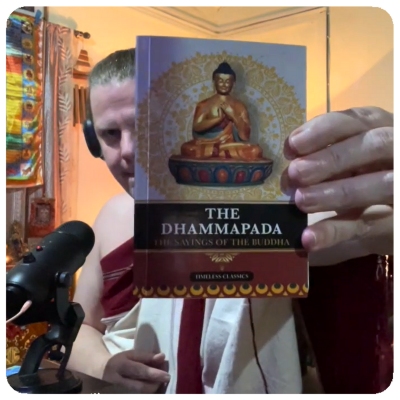 |
 |
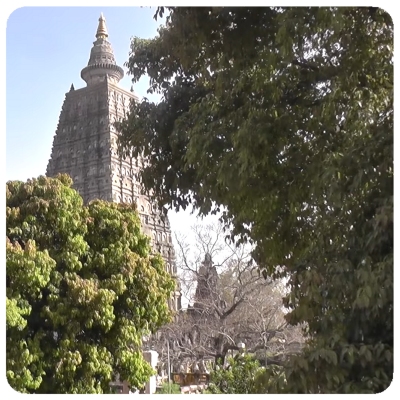 |
 |
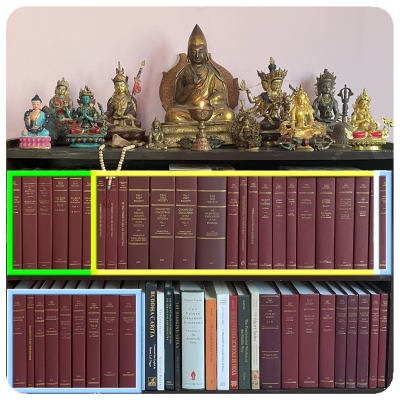 5. TIPIṬAKA |
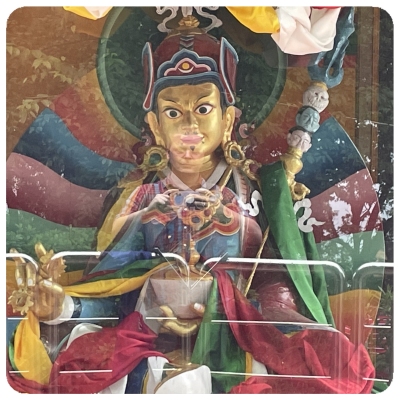 6. PADMASAMBHAVA |
 7. SHINGON |
 Special Episodes |
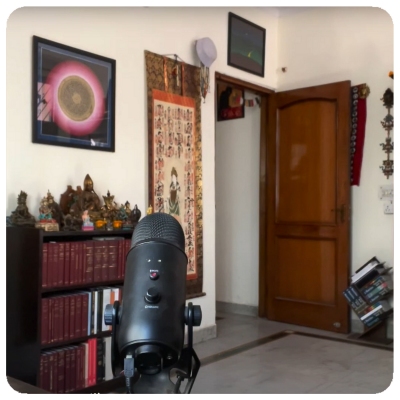 Behind The Scenes |
* Edward is not a formally ordained Ngakpa, but wears the shawl, with great respect, during these recitations of published Buddhist Scriptures.
